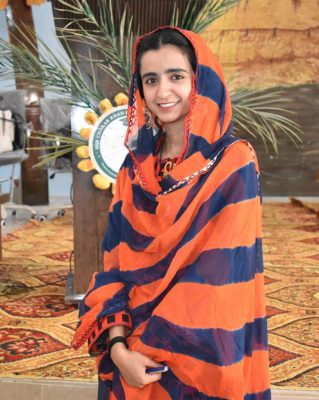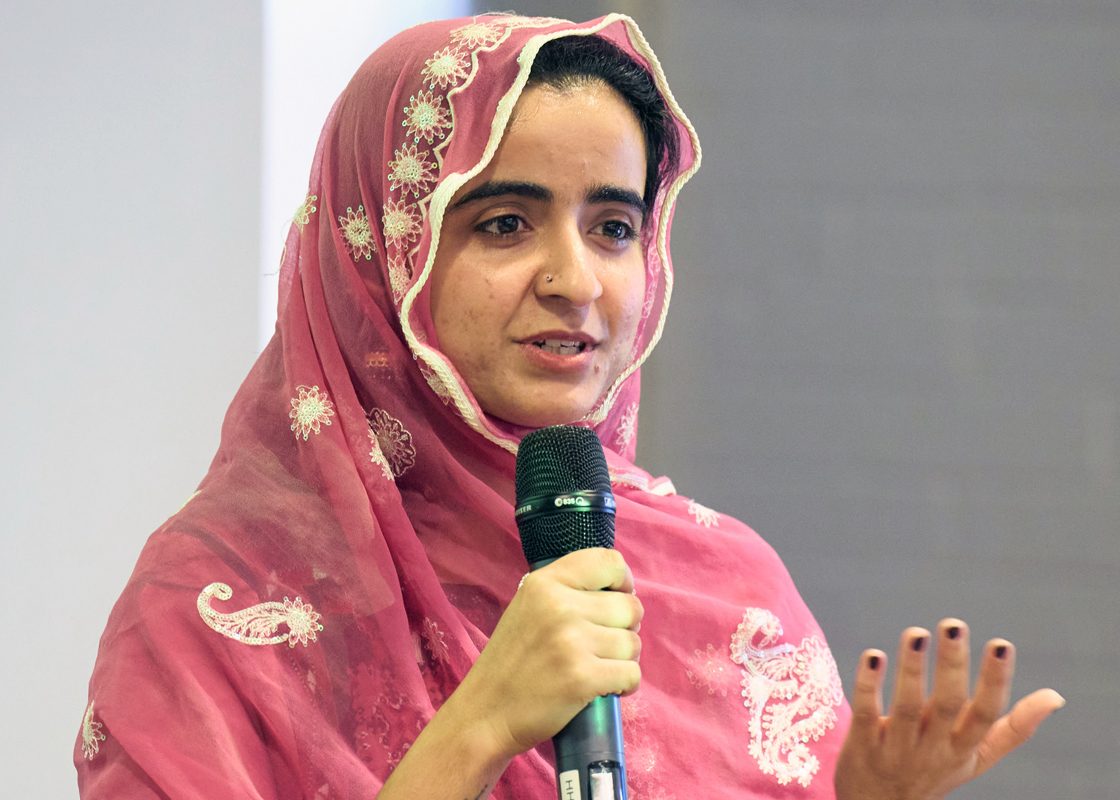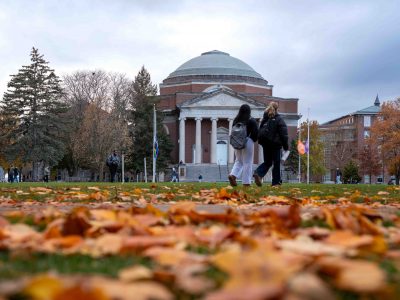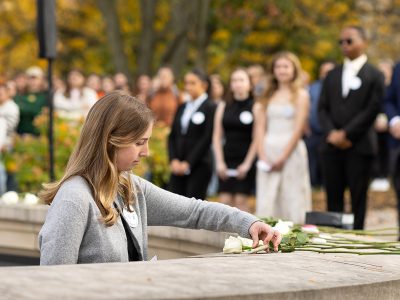Doctoral Candidate Wins Grant for Research on Infrastructure, Violence and Resistance in Pakistan
Bramsh Khan, a Ph.D. candidate in social science in the Maxwell School of Citizenship and Public Affairs, has been awarded a prestigious Wenner-Gren Foundation Dissertation Fieldwork Grant. The Wenner-Gren Foundation, established in 1941, is dedicated to advancing anthropological knowledge throughout the world; its highly competitive Dissertation Fieldwork Grant supports research that is innovative, field-based and globally relevant. With this award, Khan joins a distinguished lineage of anthropologists whose work is rooted in advocacy and community engagement.
Khan’s research examines how state-led infrastructural development in Balochistan, Pakistan, impacts the lives and livelihoods of Baloch people, who are both historically marginalized and actively persecuted. Khan, herself Baloch and from the region she studies, grounds her project in ethnographic fieldwork focusing specifically on the stories of Baloch women. It is a perspective that centers voices from, as she describes it, “the periphery of the periphery.”
Through these narratives, Khan reveals the layered consequences of the development of megaprojects—particularly a $62 billion China Pakistan Economic Corridor and its M-8 motorway project, funded by China and Pakistan, that now cuts through land both sacred to the Baloch people and essential to their seasonal migration patterns. Shepherds, farmers and fishermen—whose livelihoods are closely tied to the land and sea—have been displaced and their way of life profoundly disrupted. Khan’s work exposes how the rhetoric of development and modernity can obscure violence and destruction. “These communities that are negatively impacted are not ‘undeveloped,’” Khan says. “They have been living sustainably with their environment for many generations.”
Khan’s research interrogates the rhetoric of development and modernity, asking: Who defines “development”? Who is served by it, and who pays the price? Her work highlights how infrastructure designed to “connect” can in fact isolate and disrupt. Roads, checkpoints and security zones have introduced both environmental degradation and increased militarization—bringing with them direct forms of violence, including disappearances and gender-based harm, as well as the more indirect forms inherent in cultural and economic precarity.

Yet even as she documents this violence, Khan also emphasizes the community’s resilience—particularly apparent in how women are adapting and resisting. One example she shares is a grassroots initiative in which women from farming communities teach embroidery and craftwork to displaced shepherd women, helping them reclaim autonomy and sustain their families. “Nation-state building seeks to prioritize a national identity over ethnic, or ethno-national, identities, which means cultural erasure,” Khan says. “So, teaching one another, sharing cultural knowledge—this is resistance.”
Khan, already the recipient of a 2021 Fulbright Scholarship, intends to use the Wenner-Gren grant to deepen and expand her dissertation through multimodal storytelling. In collaboration with emerging Baloch filmmakers, she is developing a film project to document both the direct and indirect violence faced by Baloch women, as well as their strategies of endurance and resistance. “Writing is powerful, but involving the other senses—visual, auditory—will allow us to convey these women’s experiences and what they are living through in a much more visceral way,” Khan says.
Khan first became aware of the Wenner-Gren grant after she sought out Dan Olson-Bang, director of professional and career development in the Graduate School, for help in finding and applying for a fellowship to support her dissertation fieldwork. “The Wenner-Gren is a great fit for Bramsh, and she has done a great job of refining her work and creating a project that is powerful and relevant,” Olson-Bang says. “I tremendously enjoyed working with her to craft her proposal. These types of opportunities for external funding are integral to the success of graduate students like her.”
Story by Sarah H. Griffin



